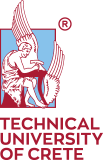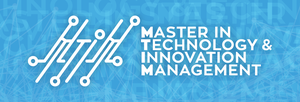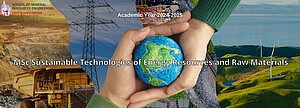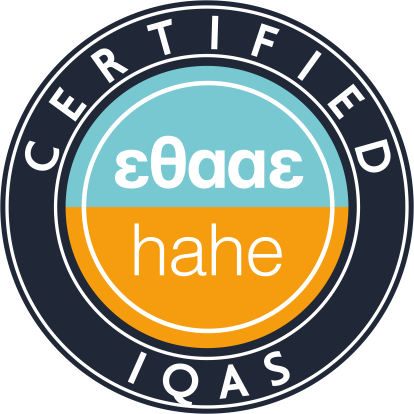MSc in Machine Learning and Data Science | Call for Applications for 2025-2026
International Study Programmes
The Technical University Crete cooperates with a large number of international universities and research institutions on research, student exchanges, staff exchanges, and more. Dozens of International students from all over the world study at the university each year, and their numbers are growing. Even though the primary language of instruction is Greek, TUC offers several study programmes that are taught in English and are open to international students. Most of the programmes taught in English are offered at postgraduate level. In addition, TUC participates in Erasmus+ Program (Action KA1 Learning Mobility of Individuals).
Master in Machine Learning and Data Science
The Master in Machine Learning and Data Science (MLDS) program at TUC is designed to provide specialization in the latest technologies behind Machine Learning (Supervised, Unsupervised, Reinforcement, Deep, Quantum) and Data Science (Data Analytics, Optimization, Big Data). It requires the completion of 8 courses (5 mandatory and 3 elective), which lead to the accumulation of 60 ECTS, while the studies in the program last between two and three academic semesters. MLDS is offered by the School of Electrical and Computer Engineering. The instruction language of the program is English.
The MLDS program accepts students with a strong background in computer science, software engineering, statistics and applied mathematics. Suitable candidates should hold a recent University degree in Computer Science, Computer Engineering, Electrical Engineering, Telecommunications, Physics, Mathematics, Applied Mathematics, Statistics, and Econometrics or a similar field. The applicants are expected to have at the very least some knowledge of programming fundamentals.
Master in Sustainable Engineering and Climate Change
The Master in Sustainable Engineering and Climate Change (SECC) at TUC is a hybrid program that leads to the degree of Master of Science (M.Sc.) in Sustainable Engineering and Climate Change and is offered by the School of Chemical and Environmental Engineering.
The minimum duration of studies is 3 academic semesters and includes the time needed to complete the Master’s Thesis. Courses are taught in English and the Master’s thesis must be written in English. Courses are taught both with in person and with online participation using e-learning platforms.
Biomedical Engineering MSc Program
The Biomedical Engineering MSc Program (BME) is a master program delivered by three collaborating Institutions in Crete, Greece:
- the University of Crete (Heraklion)
- the Technical University of Crete (Chania)
- the Foundation for Research and Technology-Hellas (Heraklion)
The program seeks to capture the global megatrends in the field of Biomedical Engineering by offering high level education in three major sectors:
- Biofabrication, Molecular Diagnostics and Therapy Module
- Βio-Medical Imaging
- Medical Information Systems
BME program is flexible, offering two graduation tracks, one with 90 credits and one with 120 credits. The first track is intended to educate graduate students willing to develop a career as biomedical engineers employed by industry/hospitals. The second track is designed to prepare graduate students willing to continue in a PhD program, through a research grade thesis conducted in one of the affiliated research labs. The course language of the program is English.
Master in Technology and Innovation Management
The Master in Technology and Innovation Management (MTIM) program at TUC builds upon the technical strengths of engineers and scientists by providing them with skills and knowledge to manage technology and innovation within their organizations. MTIM is an interdisciplinary MSc program with a minimum duration of one (1) academic year for full-time study and two (2) academic years for part-time study. It is coordinated by the School of Production Engineering and Management in collaboration with the School of Electrical and Computer Engineering. The program may include an optional summer internship - Startup Nation Study Trip.
The course language of the program is English.
The courses are offered through an eLearning platform.
The MTIM program is suitable for individuals working in the public or private sectors of the industry. It is designed for graduates from a wide range of academic backgrounds including Engineering Schools, Physics, Mathematics, Chemistry, Biology, Geology, Agriculture, Business Administration, Finance, Information Technology, Medical & Bio-medical, Military Academies and Technological Universities & Institutes from EU and non EU countries.
MSc Sustainable Technologies of Energy Resources and Raw Materials
The MSc "Sustainable Technologies of Energy Resources and Raw Materials" is part of the second cycle of studies of higher education and incorporates two specializations:
- Sustainable Technologies for Exploitation of Energy Resources-Environment.
- Sustainable Technologies for Exploration and Exploitation of Raw Materials- Recycling.
The MSc "Sustainable Technologies of Energy Resources and Raw Materials", through a broad interdisciplinary approach, aims to transfer high quality knowledge, know-how and expertise, as well as to promote research among graduate engineers and scientists in the context of sustainable development. Graduates of the MSc will acquire the skills to study and solve critical national and global issues related to the research, exploitation and processing of raw materials and energy resources, using environmentally acceptable methods and in the context of the ongoing transformation of the traditional economic model to the modern circular economy.
The program is run by the School of Mineral Resources Engineering and the language of the program is English.
More information about MSc "Sustainable Technologies of Energy Resources and Raw Materials"
Erasmus+ Programme
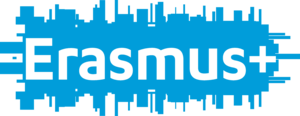
ERASMUS+ is the European Union's programme for education, training, youth and sport, which came into effect on January 1, 2014, managed by the European Commission.
Key Action 1 of the Erasmus+ program, which regards the mobility of individuals, provides, inter alia, support for students to study and practice in another country, professors and staff of higher education institutions to acquire educational and / or professional experience in another country.
The Technical University of Crete participates in ERASMUS+ Action KA1 Learning Mobility of Individuals, and more specifically in KA1.03 (Learning Mobility of HEI students and staff), KA1.07 (International Credit Mobility) and KA1.08 (TUC Mobility Consortium for Traineeships).





